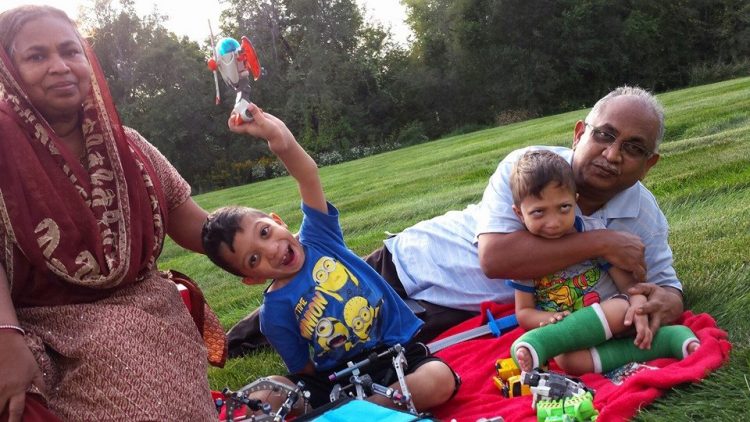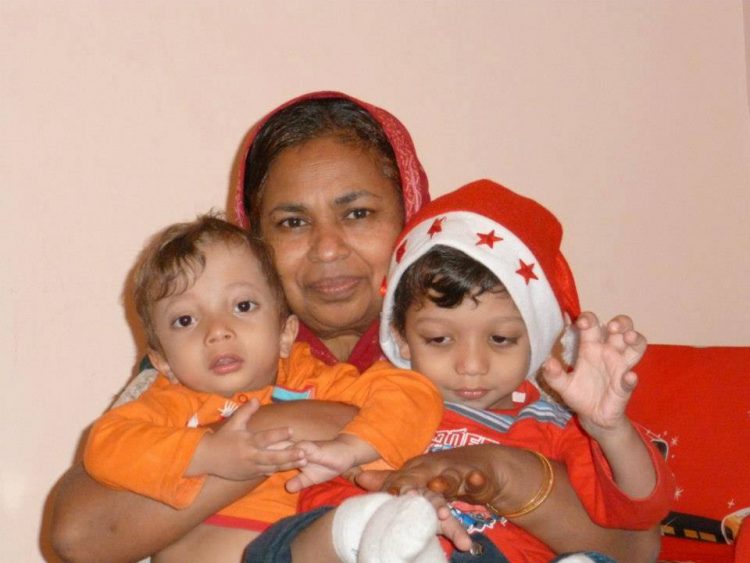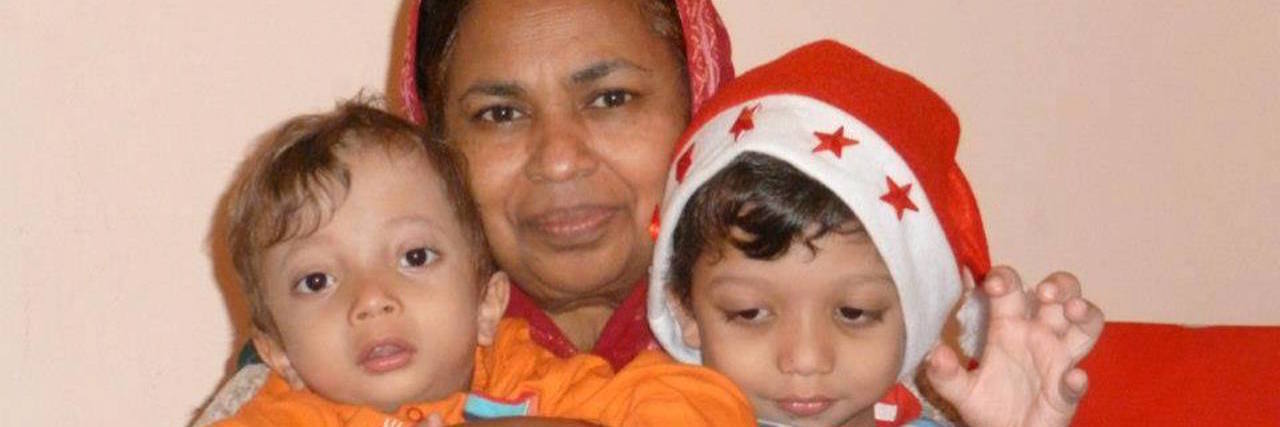I have always perceived my mom to be “weak.”
When she had me at 22, she cried. She was broken — wrought with unimaginable grief, sadness, and disbelief.
She was young, spoke very little English, and was touched by a sweet naivety that didn’t quite prepare her for the world of children with disabilities.
In India, there is a stigma surrounding disability that pervades the fabric of society. Lack of understanding, awareness, and availability of resources often shapes attitudes towards disability. People with disabilities are often viewed as burdens or punishments from God for some past sin.
After months in the NICU with me, a bout of pneumonia, misdiagnoses of polio and rickets, my mother finally took me home.
Raising a child with a rare disease in 1980’s Dubai was like driving on a highway in pitch darkness; you never knew which turn to make or where the road led. There was no Google. No internet. No doctors who could advise or prescribe a treatment. Nothing. You were completely on your own.
In a small apartment home, surrounded by miles of desert sand, my mother struggled to feed, bathe, and care for me. At every doctor’s visit, she cried. Comments like “failure to thrive,” constant X-rays, blood tests, and other medical jargon spun around her head like popping corn in a gigantic steel machine.
As my skeletal disease progressed, she worried about my waddling gait and how I would ever manage school. She worried if kids would be nice to the tiny little girl in crooked pigtails. And as the medical interventions came thick and fast, she settled into her quiet role of grief.
All of my earliest memories of my mom are of her sadness.
When my father took me for my first set of surgeries to UK, she packed all my favorite dresses and cried at the airport.
When I returned from America with casts till my hips, she watched nervously from the corner of my room.
At night, in hushed tones, she would talk about the future, wonder about God and his ways, and sleep fitfully over the incredible challenges our family faced.
Funny enough, for all my mother’s pain, I was the spunkiest kid around! Not a day went by that she didn’t see me charging down the playground — metal calipers and all, arms flailing and buck-toothed. In the neighborhood, I was “Ms. Bossy Pants,” always telling people what to do.
So you can imagine when the teen years hit, our battles were epic. While my physical body was still that of a 6-year old, my mind was not. This juxtaposition of this new reality was all too much for my mother. Seeing her little girl struggle to find independence was hard on a simple heart that wanted nothing but to protect.
Later, when I became confined to a wheelchair, the questions of marriage came up and inquisitive relatives asked: “Who will ever marry your daughter?”
I left home to become a teacher.
Years later, my mom sat with me in a doctor’s room, carrying my second son, to receive the news that both my boys had Jansen’s metaphyseal chondrodysplasia, a rare and progressive skeletal disease. After 32 years, I also had a diagnosis.
This time my mother understood every last word. She hugged her grandbabies tightly, held my hand, and for the first time, I felt my soul weep with hers.
Growing up, I always wanted to be like my father. He was strong, almost invincible. He pushed me to try everything and encouraged me when I failed. He was the last person I saw when I went into the operation room, and the first person I saw when I came out.
Today as a mother, I feel his strength and his tenacious desire to make things right. But as mother I have also learned to cry, and this important lesson was taught to me by the woman I failed to understand all these years – my mother.

When you realize your babies may not live the life you planned, the worst kind of thing happens when your soul weeps, and no matter what you do there is no way to comfort it. In my mom’s words: “A part of you withers and becomes a scar on the part of your soul that survived. After a while, there are more scars than life.”
And that’s OK. My mom taught me not to be ashamed to weep; it is alright to grieve. The Indian scripture says: “Tears are only water, and flowers, trees, and fruit cannot grow without water.” And sometimes life is just hard, and you have to cry before you can move forward.
My mom is my best friend. When my boys hurt, she is in the room with them, and that kind of strength from that kind of woman can move mountains. There’s a knot in the pit of your stomach that cries so hard it hurts your throat. But now I recognize and understand her tears are out of frustration or knowing that nothing can really change the situation. And that one tear — that tiny, salty, droplet of moisture is a means of escape. Although it’s just a small tear, it is the heaviest thing in the world that lightens the load and leads the path.
My mother is my best friend, and now I realize she is the strongest woman I know.


